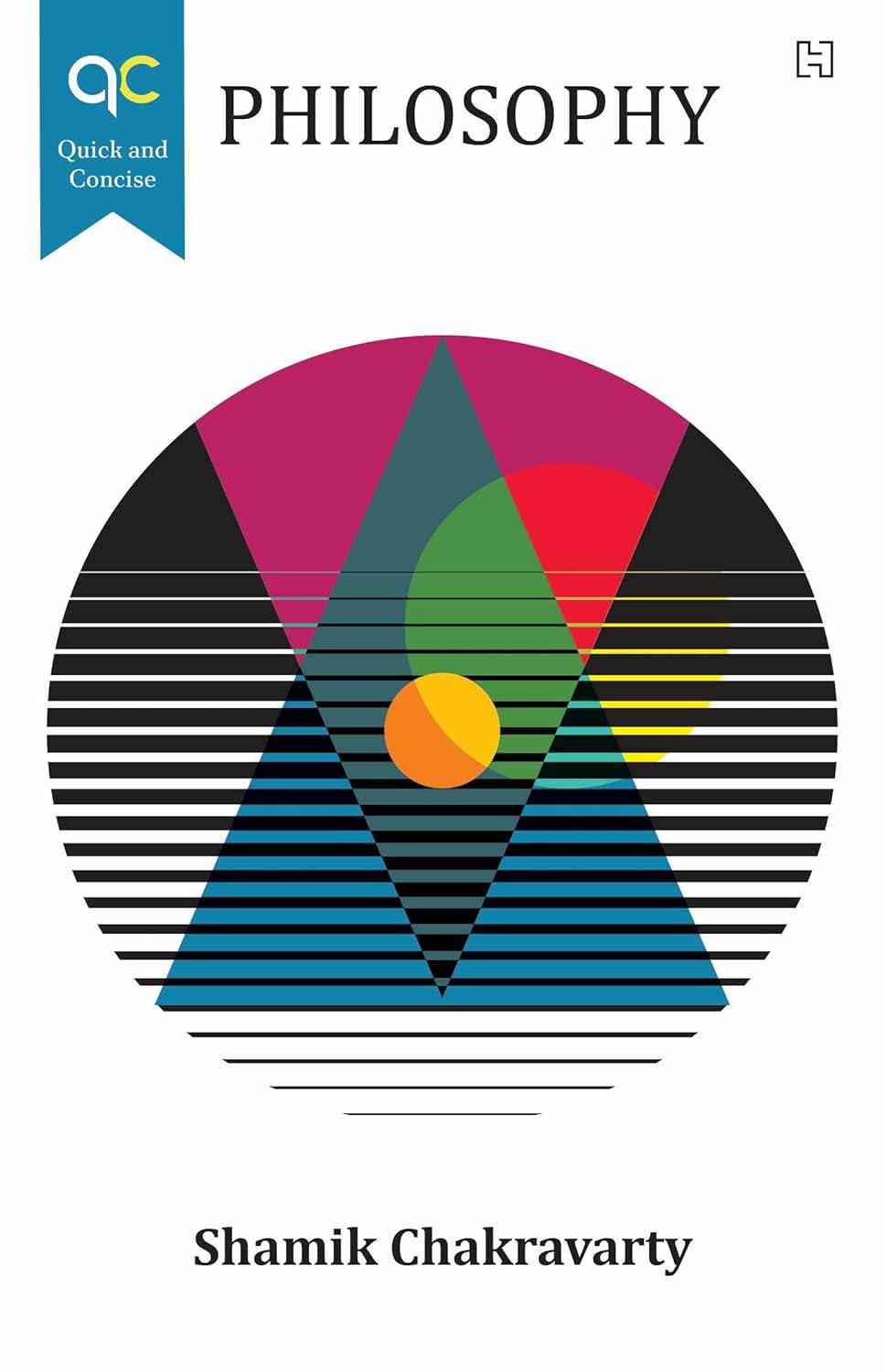You might have seen people saying things like, “This is my truth.” It looks like they’re merely describing their experience. In that case, it really isn’t their truth but THE truth about their experience, which is not different from the truth that the Earth revolves around the sun.
But you still have people saying that there is no such thing as the truth, but truth is subjective and only relative to cultures or to your and my perspective. What does this mean?
When we say that something is relative, it means that it varies from person to person or across cultures. Something is absolute when it is constant and doesn’t vary between people or societies. Relative to me, the jackfruit ice cream is tasty. Relative to my wife, who doesn’t like jackfruit, the jackfruit ice cream isn’t tasty. The jackfruit ice cream is not tasty per se; it is only tasty for people at times. My wife and I aren’t really disagreeing.
So, when people say that truth is relative, they say that there is no such thing as truth full stop; there is only truth for people at times. According to the relativist, when someone says it is true for me that the earth revolves around the sun and another person says that it is true for me that the sun revolves around the earth, they aren’t contradicting each other. If one person was saying the earth revolves around the sun and the other that it is not the case that the earth revolves around the sun, that would be a contradiction. But adding “for me” after each statement shows that they’re not really disagreeing, like in the case of “tasty”.
A major argument for relativism is that since there is no way to go beyond our limited cultural or individual perspectives to judge that a belief or statement is actually true, there is no such thing as absolute truth. Truths are only relative to an individual or culture. A person in the West cannot transcend their limited Western perspective and culturally developed standards to judge a non-Western perspective, for instance, on the efficacy of witchcraft to be false. The best explanation for this inability to judge is that there is no such thing as perspective-independent truth.
One motivation that people have for relativism is that they think it benefits society to believe in relativism. This is because people have thought that their beliefs are absolute and they have tried to force those beliefs onto people. Wars have also happened because of religions thinking that theirs is the one true religion or some political ideology thinking it is the one true ideology. But this worry about tolerance should not really lead to relativism because people can still be tolerant if they hold that “tolerance is good” is absolutely true.
Relativism leads to massive problems. A major problem is that if we take relativism seriously, there is no way our attempts to represent reality (which is what we aim for when we try to form a belief) succeed or fail. Take the belief of people in the 12th century who held on to the geocentric model of the universe: The sun revolves around the earth. However, in the twelfth century, the sun did NOT revolve around the Earth. Now, a person who understands the word “true” in English will accept this: “If P, then it is true that P.” For instance, if snow is falling, then it is true that snow is falling. In the twelfth century, if the sun didn’t revolve around the Earth, then it is true that in the twelfth century, the sun didn’t revolve around the Earth. The belief of people in the twelfth century was mistaken precisely because it was true in the twelfth century that the sun didn’t revolve around the Earth. If the relativist is right, there’s no way the beliefs of 12th-century people can be false! Because as per the relativist, it isn’t really true that the sun doesn’t revolve around the Earth but only true according to me.
Another objection to relativism is that it doesn’t allow for the possibility of undiscovered truths. There are exact details of distant stars that we may never know. Let’s take “if P, then it is true that P” again. If there is limestone 2,500 feet beneath me, it is true that there is limestone 2,500 feet beneath me. That’s why we can say that undiscovered truths exist. If the world is a certain way, it is true that the world is a certain way. But if truths are only true for someone, these undiscovered truths don’t exist since even these facts don’t exist independently of what people believe. It’s only true according to them that these facts exist. Relativism thus denies that there is a difference between what is true (which can be independent of what is known, like undiscovered truths) and what is known to be true.
There are two replies the relativist can make here. One is to say that the absolutist about truth is assuming what they are trying to prove. For there to be undiscovered truths and to believe that the earth actually revolves around the sun instead of the truth of it depending on a culture, they have to assume that relativism is already mistaken.
A classic response to this is that if the relativist believes that her opponent is wrong, then the relativist believes the opponent is mistaken because ‘all truths are relative’ is absolutely true and not relatively true. As a result, relativism is self-defeating because it leads to the contradiction that all truth is relative and some truth is non-relative. The relativist might still reply that, okay, the opponent is not absolutely mistaken but only mistaken according to the relativist. The problem again is that the relativist now holds that ‘there is no such thing as being mistaken’ to be true absolutely!
Here’s another possible response by the relativist. A fact is merely something (a statement or a proposition) that is verified or proven. This is a common view of what a fact is. This is often contrasted with an opinion: An opinion is an expression of a thought, feeling or belief. The relativist may argue that since a fact is what is verified or proven, a fact depends on whether we prove or verify it. Therefore, there can be no unverified, undiscovered facts.
This common distinction between fact and opinion is highly confused. It’s confusing because I might express my belief that the Earth revolves around the sun, and it is verified and pretty certain (which is characteristic of a fact). So first, the fact-opinion distinction is a false dilemma. A false dilemma is an informal fallacy where we are asked to pick from two options when there are more options available. In this case, the exclusive choice between either fact or opinion is a false dilemma because the belief can be either true or false after verification and yet be a (so-called) fact. That’s the third option.
Second, the above understanding of fact as a verified proposition makes the existence of facts depend on humans. This is precisely what is being questioned when it is argued that relativism doesn’t allow for undiscovered facts. The relativist cannot merely reassert their argument that facts depend on humans because it is only true according to someone that facts exist because truth is relative. It’s like when you argue against someone and they respond to your arguments by just repeating their argument or their claim. (Instead of using the fact–opinion distinction, one can just talk about propositions that are verified or proven and propositions that aren’t.)
If relativism is right, then the only facts that exist are those that are known to be true. As a result, the existence of facts is relative to people. But if facts depend upon them being proven, then facts don’t exist until proven. That’s very strange because we discover facts like there being a particular sort of bacteria. We don’t invent them, or they don’t suddenly come into being because they’re proven.
What is happening in the above line of thinking is the confusion between an ontological point and an epistemological point. Whether we can know something is different from whether a thing exists. We might not know that something exists, but it is still possible for it to exist. We may never come to know how many steps the dinosaur whose fossil was discovered walked, but the fact would still have existed. We can see this confusion in the relativist’s initial argument, too. From whether people can go beyond their perspective, which is an epistemological claim, the argument leaps to conclude something about whether the truth exists absolutely. People might not be able to know the truth through some perspective-independent criteria, but truth will still exist.
If relativism completely holds ground in society, it’s impossible to actually disagree about facts. People disagree when one says, “The earth is spherical,” and another says, “The earth is not spherical.” Disagreement (in this case) occurs when people pick out the same thing but disagree about what property it has. The people disagreeing hold that the Earth exists and that the Earth has a shape that doesn’t depend on what anyone thinks or believes. With relativism on the prowl, we might even witness suspicion between people with differing views, who refuse to hear what the other person has to say. Each person thinks that the others’ views are merely an expression of power, truth being merely a function of what power dictates.
Last but not the least, if relativism is true, then philosophical enquiry is futile. If the questions have no answers that are true but are only true for you and me, why should I look for answers?
Fortunately, one of the laws of logic is the law of the excluded middle. It states that for any proposition, either that proposition or its negation obtains (obtains is just a fancy word for occurs or exists). This is symbolised as: for any P, P v ~P (“v” is the symbol for “or” (disjunction) in logic). You can see why the law is true because of what “not” means. If ~P obtains (like it is not snowing at this exact spot/s), then this excludes every case where P obtains (it is snowing at this exact spot/s) and includes every other case (it might be raining at that spot, not raining and not snowing, hailing, sunny, etc.). If P occurs, then ~P doesn’t occur and vice versa. There can’t be a situation where neither P nor ~P occurs. That is impossible.
So for a philosophical question like whether free will exists, either free will exists or it is not the case that free will exists. There has to be an answer. We might never know the answer, but there is one. No harm in trying to look for answers to philosophical questions then. Let’s begin.

Excerpted with permission from Quick and Concise: Philosophy, Shamik Chakravarty, Hachette India.










